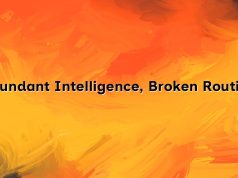In an era where artificial intelligence (AI) not only plays a pivotal role in today’s industries but also shapes tomorrow’s job market, the race is on to decipher the enigma of future-proof education. As the burgeoning AI landscape redefines the boundaries of work, the graduates club is tasked with a formidable challenge: equipping a new generation with the tools to succeed in a world of unknown careers.
The education sector is currently at a crossroads, faced with the daunting question: How do we prepare students for jobs that have yet to be created? This AI education paradox presents an intricate blend of hurdles and prospects for educators, learners, and the global workforce.
The advent of AI has the potential to automate countless tasks, pushing the envelope of productivity and innovation. However, this automation raises concerns over job displacement and the growing skills gap. Will the future be dominated by a workforce of machines, or will human ingenuity continue to be the driving force behind progress? This tug-of-war between technological advancement and employment security is central to our discussion.
One way to address this conundrum is through innovative educational models that prioritize adaptability. Project-based learning, interdisciplinary studies, and experiential learning are becoming increasingly important in developing a flexible skill set that can be applied across various fields. These models foster critical thinking, creativity, and the ability to learn new technologies—attributes that will be invaluable in an AI-centric job market.
Moreover, continuous learning emerges as a key strategy in career development. As traditional career paths become less linear, professionals must be willing to adapt and grow with the evolving demands of the workplace. Here, the industry and academia can collaborate to create programs that encourage lifelong learning, ensuring that today’s workers can navigate tomorrow’s challenges.
Companies also play a crucial role in shaping a work culture that embraces change and technological adoption. By investing in employee training, promoting a growth mindset, and staying ahead of the tech curve, businesses can cultivate an environment where human and artificial intelligence synergize to drive progress.
However, an AI-dominant workplace is not without its societal and ethical considerations. We must ask ourselves: How do we ensure that AI serves the common good? It’s imperative to adopt a human-centric approach in AI development, emphasizing transparency, accountability, and inclusivity to maintain a balance between technological integration and the essence of our humanity.
As we contemplate the future of learning and working in an AI-driven world, the conversation extends beyond mere speculation. It’s a call to action for all stakeholders—educators, students, industries, and policy makers—to actively shape a future where intelligence, both artificial and human, can coexist and complement each other.
Join us as we unravel this paradox, seeking pathways to empower the workforce of tomorrow. Through dialogue, innovation, and foresight, we can transform the AI education paradox into a blueprint for a thriving, dynamic future workplace.

























